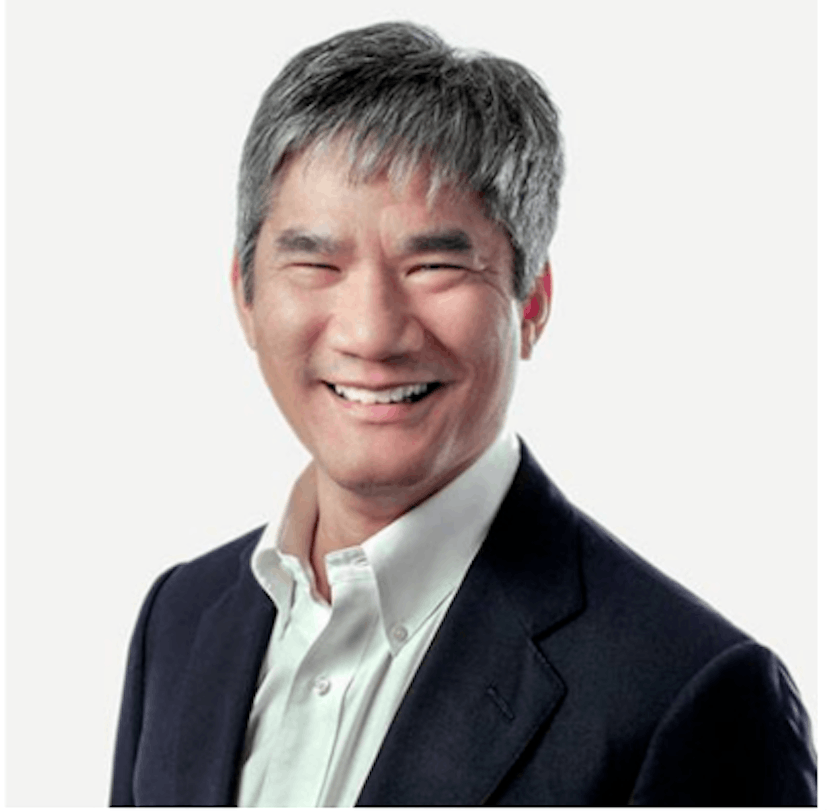Eric Schmidt has been quietly building an investment vehicle blending public and private funds that could grant the former Google CEO unusual influence over U.S. national security policy and, potentially, the opportunity to steer taxpayer money to his own bets.
The blandly named America’s Frontier Fund—which has so far received no media attention—will be led by a who’s who of the defense establishment combined with close associates of Schmidt’s ventures in business, finance and public policy. The high-powered investment vehicle appears to be modelled on In-Q-Tel, a nonprofit venture capital firm with close ties to the Central Intelligence Agency that has faced allegations of serious conflicts of interest among its trustees.

In fact, AFF will be helmed by the former chief executive of In-Q-Tel, Gilman Louie, and a former executive at Schmidt Futures, Jordan Blashek. A roster of well-connected defense insiders will populate the board and serve as its anchor funders, including Michèle Flournoy, former undersecretary of defense under President Barack Obama, former Secretary of Defense Ash Carter and H.R. McMaster, U.S. national security advisor at the Trump White House.
Also listed among the new group's "Board of Directors and anchor funders": Eric Schimdt himself, according to a draft press release briefly published on its website, which suggested it was preparing for an official launch as soon as this week. The draft release was viewed by TTP before it was taken down.
The exact source and amount of public money involved remains unclear. However, the draft press release acknowledged AFF’s unusual nature, referring to it as the nation’s first “public-private” fund able to “leverage public, private and philanthropic capital” for defense-related tech investments.
“This structure enables AFF not only to raise and deploy long-term private capital, but also to invest government funding designated for technology development,” it stated.
Other publicly available documents shed some additional light on the fund’s plans. A job posting noted that AFF’s “primary government clients” would include the departments of Commerce, Defense and Energy and, in the future, state-level clients. Blashek, AFF’s president, has described AFF’s average investment range as between $500,000 and $10 million, with a “sweet spot” of $1 million. (Similarly, In-Q-Tel’s investments “typically range from $500,000 to $3 million.”)

A draft press release announcing the launch of America’s Frontier Fund was removed shortly after it was posted.
It is unclear whether the new fund and its principals will be subject to any governance controls to prevent abuse. One concern is that AFF could confer a special seal of approval by the U.S. government on highly speculative investments by its well-connected principals. The prospect of a government contract, especially in the lucrative area of defense, could generate outsized gains for early investors.
Another concern is that many of those involved in AFF are extremely well-connected in the U.S. government, in venture capital and in tech startups. It is unclear if any safeguards could prevent the principals from profiting from their inside knowledge and ability to direct public investments.
It is more than a theoretical issue. According to a 2016 report in the Wall Street Journal, nearly half of In-Q-Tel’s trustees had a financial connection with companies backed by the CIA fund.
The risk is particularly serious for Schmidt, who is reported to have “invested millions of dollars into more than half a dozen defense startups,” and could use his influence over AFF to direct public funds to startups in which he is an investor. According to the draft press release, the fund’s “initial areas of focus include microelectronics, artificial intelligence, and advanced networks (5G/6G).”
Schmidt invests in a number of startups that could benefit from AFF investments in these areas.
The new fund is the latest sign of Schmidt’s unusual and far-reaching influence in technology, investing and national security matters. Schmidt stepped down as Google’s CEO in 2011 and, four years later, as its chairman. During his time at the company, however, he amassed an estimated $19 billion fortune, which he has deployed in a wide array of investments in technology startups with potential military and intelligence applications.
At the same time, Schmidt has carved out an unusual role for a private citizen in shaping U.S. defense policy. From 2016 to 2020, he chaired the Defense Innovation Board, which provided advice to the U.S. defense secretary and other senior Pentagon brass on emerging technologies. Schmidt’s role in suggesting technologies and vendors to the Pentagon reportedly stirred the concern of at least one government ethics official.
Underlining the close web of relationships, then Defense Secretary Carter, who will serve on the board of AFF, tapped Schmidt to lead the DIB.
From 2018 to 2021, Schmidt also chaired the National Security Commission on Artificial Intelligence (NSCAI), which advised Congress and the White House on ways AI could be used to address U.S. defense needs. That work appears to have set the stage for the creation of AFF.
Michèle Flournoy, an AFF board member, has frequently collaborated with Eric Schmidt.
In late 2021, as the work was concluding, several of Schmidt’s close associates formed AFF. The fund appears to fill a role suggested by the Schmidt-chaired NSCAI: In its final report, released in March 2021, NSCAI recommended the establishment of a “joint emerging-tech investment consortium” modelled on In-Q-Tel. As envisioned by Schmidt’s NSCAI, “the consortium would spur investment by the United States and foreign partners in early-stage companies to further development of AI technology that advances and/or protects democratic values.”

Michèle Flournoy, an AFF board member, has frequently collaborated with Eric Schmidt.
A current listing of the board on the AFF site does not include Schmidt. But the organization includes several individuals with longstanding ties to Schmidt. They include Eric Braverman, the CEO of Schmidt Futures, a Schmidt investment fund, who is an AFF board member. Flournoy, another AFF board member, is a co-founder and managing partner of WestExec Advisors, a well-connected Washington consulting firm.
Schmidt and Flournoy have worked closely together in recent years. WestExec Advisors has worked with Schmidt Futures, as well as Google’s think tank Jigsaw, which Schmidt also founded. Flournoy appeared on a 2019 NSCAI panel and the commission’s final report repeatedly cited her writings and public comments. Schmidt and Flournoy also appeared together on a 2021 Washington Post panel on the digital transformation of the military, and they co-hosted a virtual fundraiser for Joe Biden in September 2020.
Several other members of AFF’s leadership also have close ties to Schmidt. AFF’s CEO, Gilman Louie, was a member of Schmidt’s NSCAI and a consultant to the Defense Innovation Board.
Louie was the original CEO of In-Q-Tel, the nonprofit strategic investor that is funded by the CIA and other agencies in the intelligence community, and his relationship with Schmidt may date back to the early years of that organization. In 2003, In-Q-Tel invested in a satellite mapping company called Keyhole. In 2004, Keyhole was purchased by Google, and it eventually became part of Google Earth.

Gilman Louie, AFF’s CEO, has worked with Eric Schmidt in the past.
More recently, as part of his work with the Defense Innovation Board, Louie co-authored a 2019 white paper with Google vice president Milo Medin that warned the U.S. may be unable to keep up with China in developing 5G technology because the necessary mid-band spectrum in the U.S. was not available for commercial use. These concerns have been echoed by Schmidt and Google, who have advocated that the Pentagon allow private firms to use mid-band spectrum that it reserves for the military. Google’s parent company, Alphabet, stands to benefit significantly from the development of 5G, as does Schmidt, who continues to hold millions of shares of Alphabet stock.
Schmidt and Louie appeared together on a May 2021 Brookings panel on “a national strategy for AI innovation.” Schmidt also praised Louie at an October 2021 ceremony where Louie was presented with an award, noting that he “had the honor to work with Gilman for several years in the federal government.” Louie still has government influence: In May 2022, President Biden named Louie to the President’s Intelligence Advisory Board.
Artificial intelligence, one of AFF’s areas of focus, features particularly prominently in Schmidt’s investment portfolio. He is the executive chairman of Steel Perlot, an investment fund whose specialties include artificial intelligence. Schmidt’s 28-year-old girlfriend, Michelle Ritter, is the company’s CEO. Schmidt is also a limited partner in Zetta Venture Partners, which bills itself as “the first [venture capital] firm exclusively focused on AI.”
Schmidt has also individually invested in Rebellion Defense, a startup that makes artificial intelligence software for the defense industry, and Abacus.ai, a company that implements machine learning across a number of sectors. Earlier this year, Schmidt Futures announced a $125 million fund to invest in artificial intelligence.
Other AFF areas of focus could also enrich Schmidt. Innovation Endeavors, an investment fund founded by Schmidt, has taken stakes in a number of companies that stand to benefit from investments in advanced networks, including Qwilt, a company that leverages 5G technology to deliver online content, and InsidePacket, a company that offers networking services.
Schmidt also invests in microelectronics, small electronic components made of semiconductor materials, through a number of investment vehicles. Innovation Endeavors invests in quantum computing technologies that likely rely on microelectronics. Tomorrow Ventures, another Schmidt-founded investment firm, holds nearly a million shares in Navitas Semiconductor, a circuit and electronics manufacturer.
The president of Schmidt’s family office, Hillspire LLC, serves on the board of another microelectronics manufacturer called NXP Semiconductor. And Schmidt Futures has funded academic research in microelectronics through its Schmidt Science Fellows program.
Flournoy and Louie will also likely face similar conflicts of interest at AFF. Flournoy’s firm WestExec is a co-founder and strategic partner of Ridgeline Partners, “a venture capital and special situation fund” that invests in “the global security arena.” Louie is a co-founder of Alsop Louie Partners, “an early-stage, risk-oriented technology venture capital firm” where “half of the partners have had careers at intelligence agencies.”
Schmidt’s connections to AFF run deep. Blashek, an executive-in-residence at Schmidt Futures who is president and chief operating officer at AFF, has used his social media accounts to share Schmidt’s writings. Blashek is also an outspoken Republican, and his role at the fund may help it and Schmidt, a well-known Democrat, build relationships with conservatives.
AFF has made other steps in that direction. In January 2022, it hired Alex El-Fakir as manager of operations. El-Fakir held several positions in the Trump White House, including lead advance staffer for President Trump.
AFF’s director of strategic communications, Shannon Beckham, previously worked at Schmidt Futures. And Juleanna Glover, a Washington public affairs executive who lists Google among her clients, appears as a media contact on an AFF press release that was posted on May 24.




